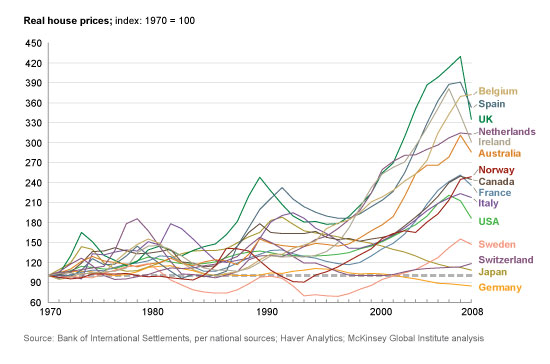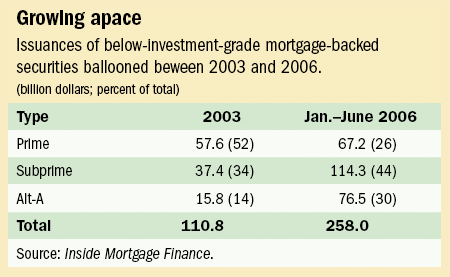You saying the 'markets' don't work?
Markets work most of the time. Sometimes they don't work all the time. I've spent nearly 20 years in capital markets and have seen first hand how markets break down.
In that paper, there is a an "if-then" argument. "If" the Federal Reserve had to lower interest rates, "then" the government should have increased regulation.
First, in theory, that's absolutely correct. Take an extreme example. Had the government changed the law to require a 50% or higher loan to value, there would have been no housing bubble. The housing market would have collapsed, but there would have been no bubble.
Second, the authors didn't argue that there shouldn't have been deregulation. They were arguing that there should have been
more regulation to offset the abnormally low interest rate. I don't know of any economist who was arguing that we should increase taxes in 2003 or 04 as the authors suggested. Paul Krugman went on 60 Minutes to argue that the government should inflate the housing market as stimulus.
But the first order was that the Fed kept interest rates too low for too long. The second order required increased regulation. Had the first order not existed, i.e. interest rates not been kept too low, there would have been no argument for the second order, that there should not have been a need for regulation.
Also, the authors seem to mis-understand how asset markets work. That housing prices were rising when the Fed was increasing rates is what we'd expect in a normal market, and it's not a priori evidence that the Fed was not being too loose. Markets tip over usually when credit is tight, not when the short end of the curve begins to rise.
after the Fed started to tighten its monetary-policy stance and the prime segment of the mortgage market promptly turned around,
the subprime segment of the mortgage market continued to boom, with increased perceived risk of loans portfolios and declining lending standards. Despite this evidence, the first regulatory action to rein in those financial excesses was undertaken only in late 2006, after almost two years of steady increases in the federal funds rate.
When regulators finally decided to act, it was too late
Was it easy money or easy regulation that caused the housing bubble? | AEIdeas
Bubbles happen for many reasons. For the Housing Bubble, I blame the following in this order
1. The Fed
Then way down
2. Wall Street
3. Deregulation
Deregulation in financial services is usually a good thing in the long-term, but in the short-term, it can create bubbles, asset mispricing and economic collapse. There is significant empirical evidence from around the world that both are the case.
The actions of the Fed and the mispricing of credit spurred the second two causes of the collapse.


